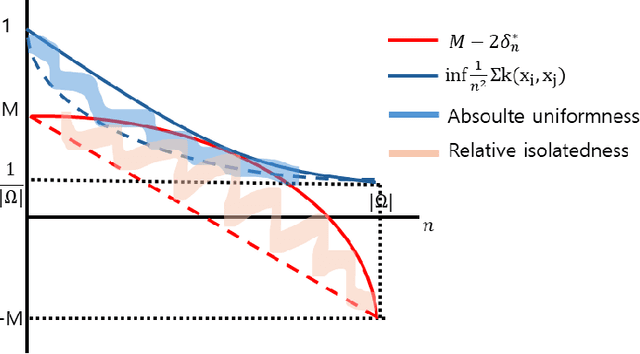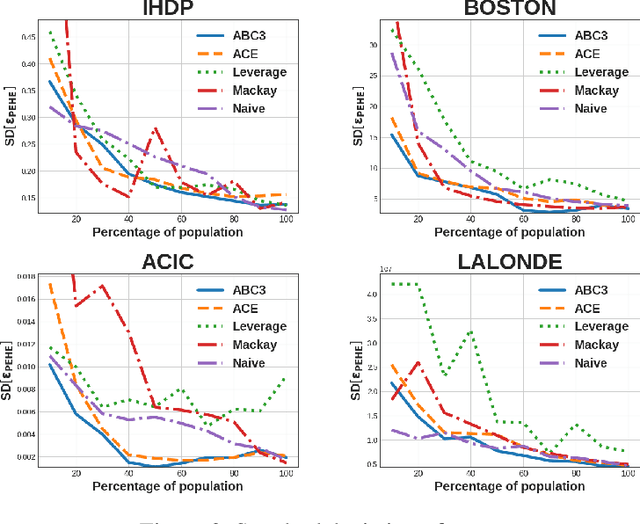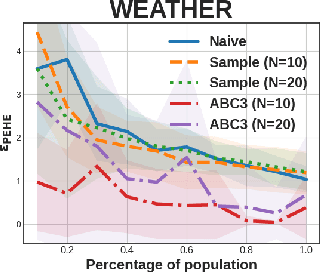Taehun Cha
ABC3: Active Bayesian Causal Inference with Cohn Criteria in Randomized Experiments
Dec 15, 2024



Abstract:In causal inference, randomized experiment is a de facto method to overcome various theoretical issues in observational study. However, the experimental design requires expensive costs, so an efficient experimental design is necessary. We propose ABC3, a Bayesian active learning policy for causal inference. We show a policy minimizing an estimation error on conditional average treatment effect is equivalent to minimizing an integrated posterior variance, similar to Cohn criteria \citep{cohn1994active}. We theoretically prove ABC3 also minimizes an imbalance between the treatment and control groups and the type 1 error probability. Imbalance-minimizing characteristic is especially notable as several works have emphasized the importance of achieving balance. Through extensive experiments on real-world data sets, ABC3 achieves the highest efficiency, while empirically showing the theoretical results hold.
Pre-trained Language Models Return Distinguishable Probability Distributions to Unfaithfully Hallucinated Texts
Sep 25, 2024Abstract:In this work, we show the pre-trained language models return distinguishable generation probability and uncertainty distribution to unfaithfully hallucinated texts, regardless of their size and structure. By examining 24 models on 6 data sets, we find out that 88-98% of cases return statistically significantly distinguishable generation probability and uncertainty distributions. Using this general phenomenon, we showcase a hallucination-reducing training algorithm. Our algorithm outperforms other baselines by achieving higher faithfulness metrics while maintaining sound general text quality measures.
 Add to Chrome
Add to Chrome Add to Firefox
Add to Firefox Add to Edge
Add to Edge